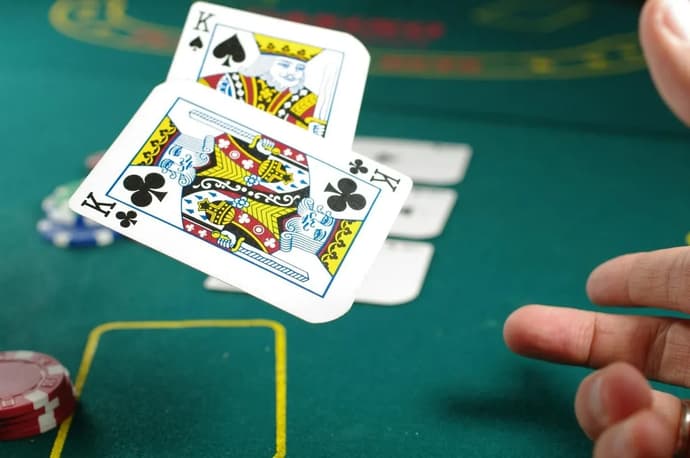Lesser-known poker strategies that will increase your chances of winning

Poker is not just a game of cards, but also the art of strategic thinking, risk management and understanding the psychology of your opponents, which is why it is increasingly being classified as a sport rather than a gambling game available in online casinos.
And in order to succeed at poker, especially at an advanced level, as a player you will need to reach for less obvious strategies that will increase your chances of winning. In this article, we will discuss some such advanced techniques that will make winning easier.
Poker - facts and figures
Poker is a game that has been around for many decades, but it is safe to say that it is experiencing a renaissance in popularity in the 21st century, especially when it comes to the extremely exciting Texas Hold'em variant. It is this version that most international tournaments take place.
It is also permanently offered by online gaming houses. So if you're looking for excitement in this game, it's best to discover a new online casino with innovative games like live poker, which will allow you to compete against players from all over the world for very high cash prizes. The CoinPoker site, for example, offers tournaments with prize pools numbering in the thousands of dollars every day. What else is there to know about poker?
- poker originated over 1 000 years ago,
- it originated from the game of dominoes,
- there are more than 100 variations of the game,
- poker chips appeared in the 1990s,
- the longest game of poker lasted over 8 years.
How to play poker successfully?
It's time to get down to the nitty-gritty of the game - tips that can make us better players. I have considered tactics such as bluffing, analysing the behaviour of rivals and the most interesting psychological techniques.
Poker - when does bluffing pay off?
Bluffing is among the most characteristic elements of poker. On the other hand, it is unskilful bluffing that most often leads to defeats. When to bluff is the basis of successful play. Advanced players, including those at the top of the world, such as Polish poker champion Dominik Panka, use three main types of bluffs:
- Continuation betThis type of bluff occurs when a player who played aggressively before the flop (e.g. raising) continues to play aggressively after the flop, regardless of whether his hand is stronger. This type of bet works best when the flop does not favour the opponents. For a continuation bet to be effective, it is worth paying attention to the type of opponents - this bluff can yield good results especially against passive opponents.
- Bluffing at 'scare cards'Scare cards are cards whose appearance can significantly change the hand on the table, such as an ace, king or a card that can complete a straight or flush. If you are considered a cautious player, you can use a scare card to take the initiative and make a strong bluff that will make your opponents fold even better hands.
- Bluffing on the riverBluffing on the last card, during the so-called 'river', is riskier but also less predictable, as opponents make their final decisions at this point. Such a bluff makes sense when you notice that your opponent has been waiting for a draw and has probably not completed it.
Analysing your opponents' behaviour and patterns
Understanding your opponent's style of play is key to making better decisions at the poker table. This type of strategy can also be used in online poker, even if you are not able to read your opponents' body language.
- Decision-making timeIn online poker, a player's reaction time can say a lot about his situation. A quick decision to check or raise often means a weaker hand, while taking a longer time to think about it can suggest a difficult decision with a marginal hand.
- Size of betsAdvanced players can read the strength of an opponent's hand based on the value of the bet they are making. For example, repeated small bets may suggest an attempt to control the pot with a mediocre hand, while large bets usually indicate a strong hand or a bluff.
Psychological tactics in online poker tournaments
As I have mentioned several times before, online poker tournaments are governed by slightly different rules than playing at a live table. Here, psychology and managing your own emotions play a key role. Here are some ways to potentially increase your chances:
- Using variation in playing styleExperienced players do not stick to one style all the time. Varying your tempo and aggression depending on the situation on the table will make it harder for your opponents to anticipate your moves. For example, if you have been playing tight for a long time and suddenly start aggressively raising, it will be easier for you to make an effective bluff.
- Exploiting your opponents' tiltTilt is an emotional state that is well known to experienced players. A player affected by it loses control of their game due to frustration or anger. In online poker, you can cause an opponent's tilt by, for example, constantly aggressively raising their bets or making unusual moves that cause your opponent to become irritated. When you notice your opponent starting to play chaotically, this is the perfect time to launch an attack.
Poker strategies - will they improve your chances
Advanced poker strategies, such as bluffing at the right moments in the first place, as well as reading your opponents and using psychological tactics, can significantly increase your chances of winning, especially in online tournaments.
The key to success, however, remains adapting your strategy to the situation on the table. If you master this art to perfection, and learn to control your emotions, you will stand a chance against your strongest rivals.

Elen Stelmakh is a creative individual dedicated to advancing gaming culture through articles and visual design. As a full-time EGamersWorld author and designer for a gaming website, Elen not only creates content but also infuses it with energy and creativity.
 LCK Cup 2026 Week 3 Schedule and Week 2 - ResultsCK Cup 2026 Super Week is here! Get the full Week 3 schedule and Week 2 recap. See if Gen.G and T1 can maintain their 4-0 streaks in decisive Bo5 matches to secure their playoff seeding.
LCK Cup 2026 Week 3 Schedule and Week 2 - ResultsCK Cup 2026 Super Week is here! Get the full Week 3 schedule and Week 2 recap. See if Gen.G and T1 can maintain their 4-0 streaks in decisive Bo5 matches to secure their playoff seeding. Roblox Arise Crossover Codes January 2026All about Arise Crossover codes and the rewards they provide.
Roblox Arise Crossover Codes January 2026All about Arise Crossover codes and the rewards they provide. When Does New Season ARC Raiders StartThe Headwinds season in ARC Raiders begins January 27, 2026, with new maps, enemies, quests, and monthly updates through April.
When Does New Season ARC Raiders StartThe Headwinds season in ARC Raiders begins January 27, 2026, with new maps, enemies, quests, and monthly updates through April. LCS 2026 Lock-In Preview - Teams, Format And ScheduleLCS 2026 Lock-In Guide: Full schedule, Fearless Draft format, and teams to watch. Analyze Sentinels, LYON, and FlyQuest ahead of the Jan 24 start.
LCS 2026 Lock-In Preview - Teams, Format And ScheduleLCS 2026 Lock-In Guide: Full schedule, Fearless Draft format, and teams to watch. Analyze Sentinels, LYON, and FlyQuest ahead of the Jan 24 start.

